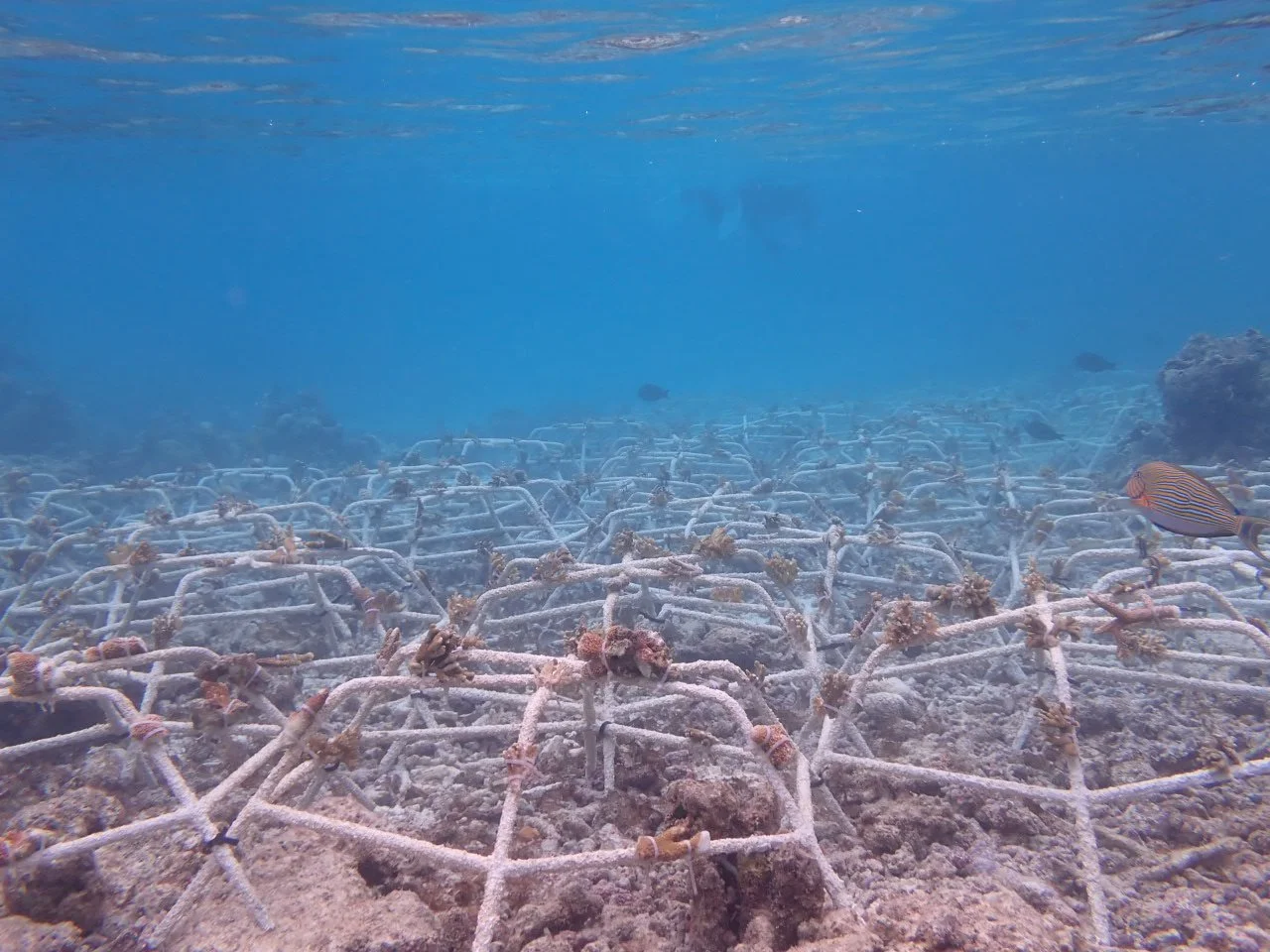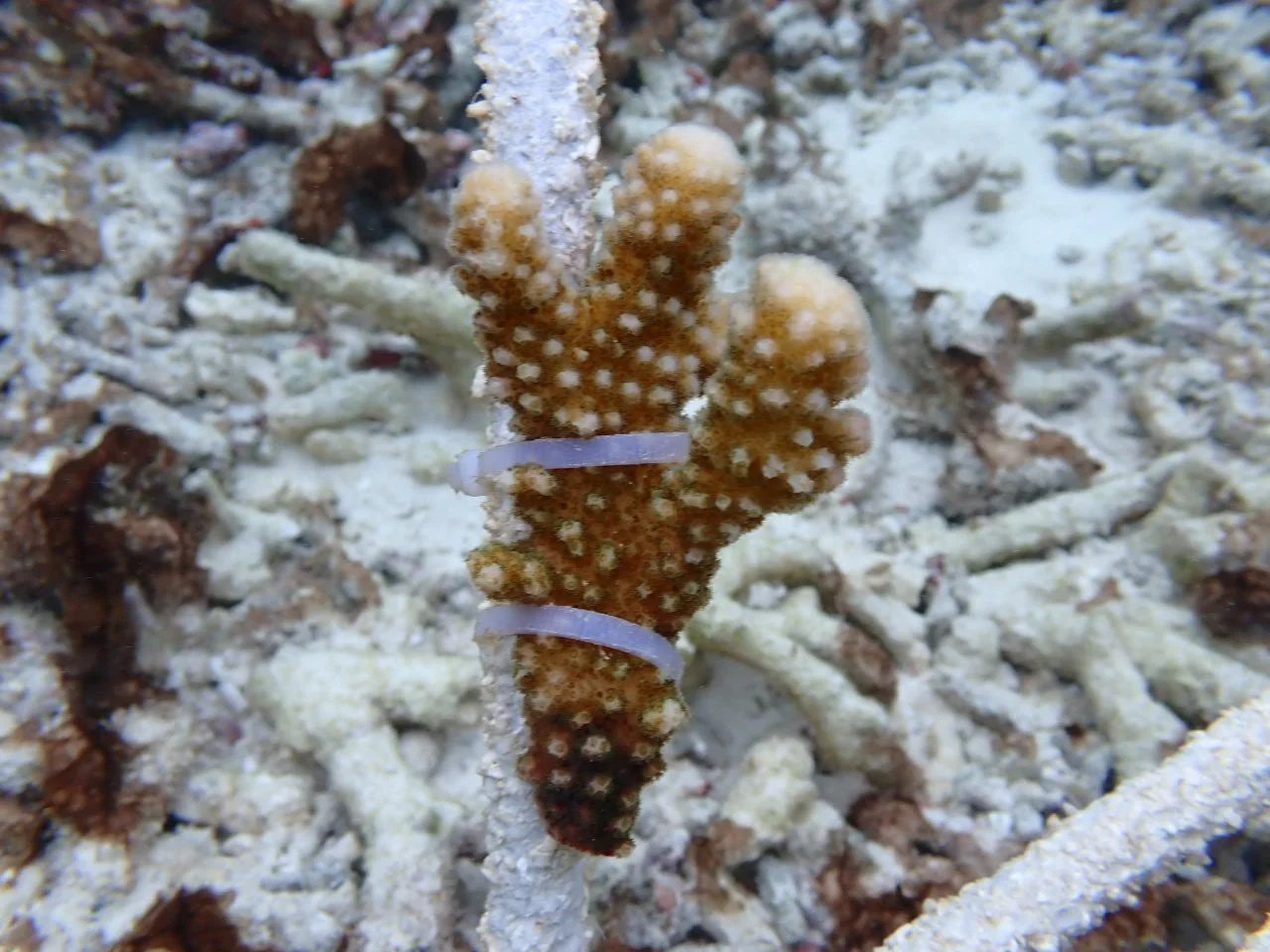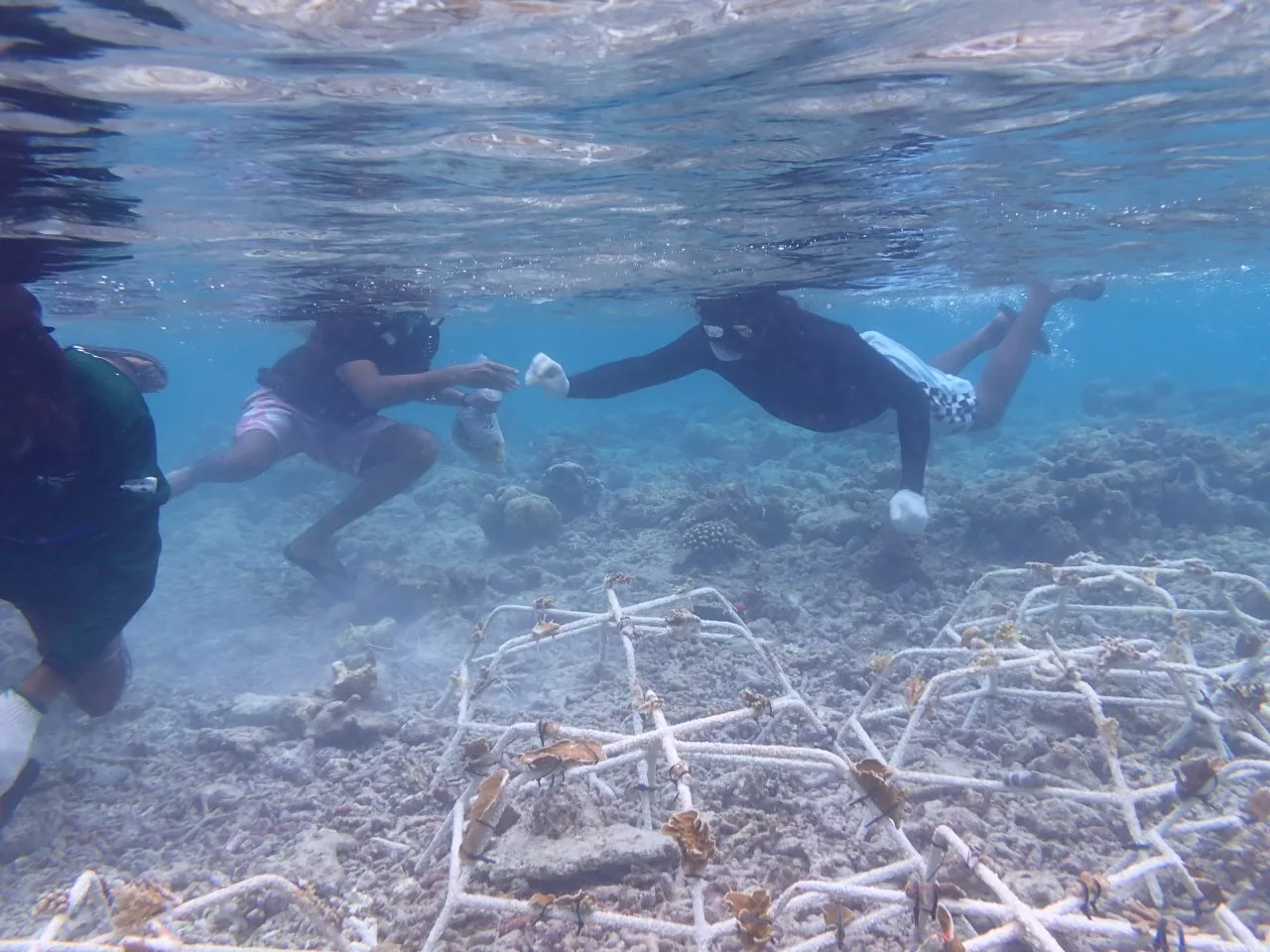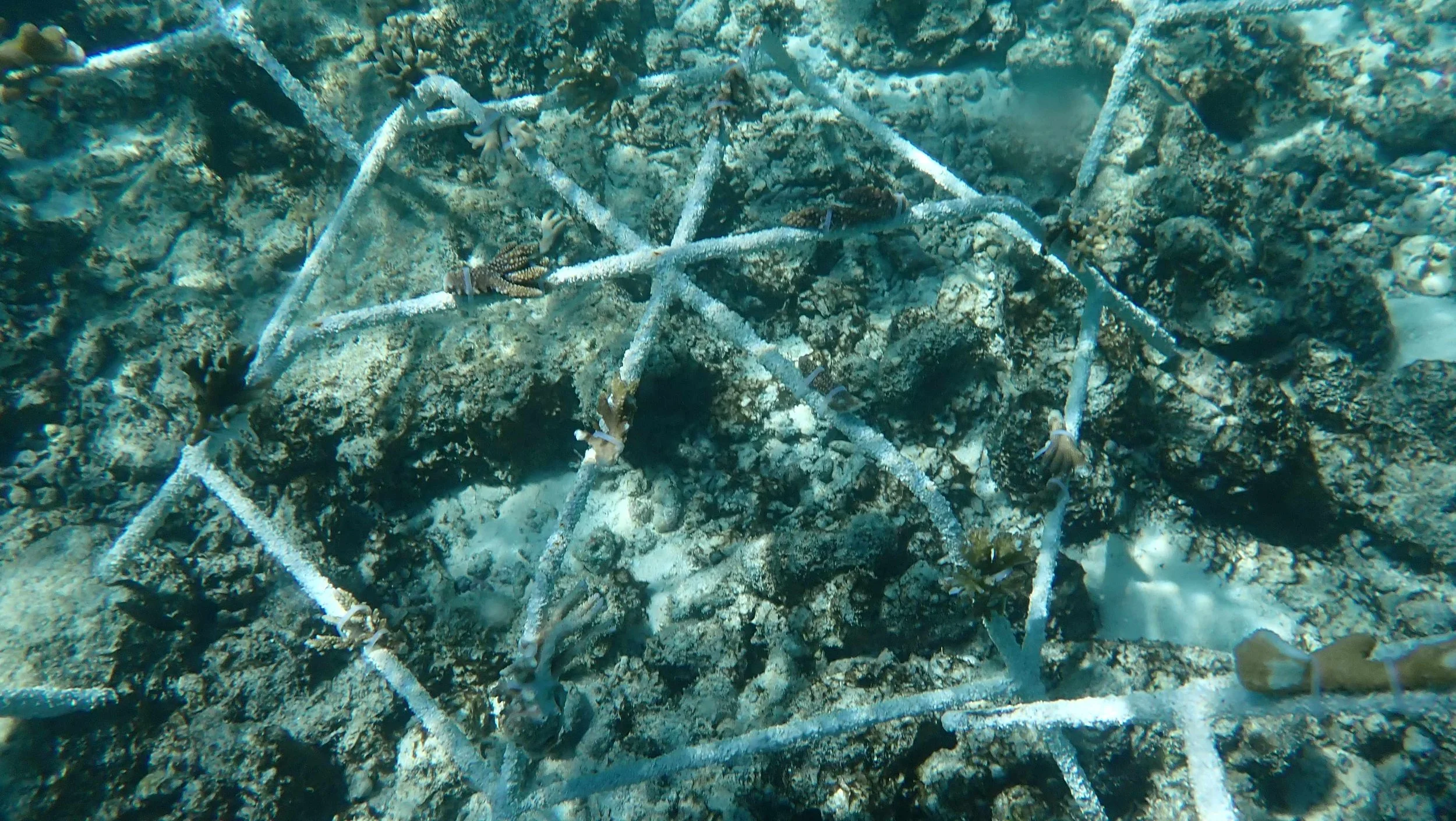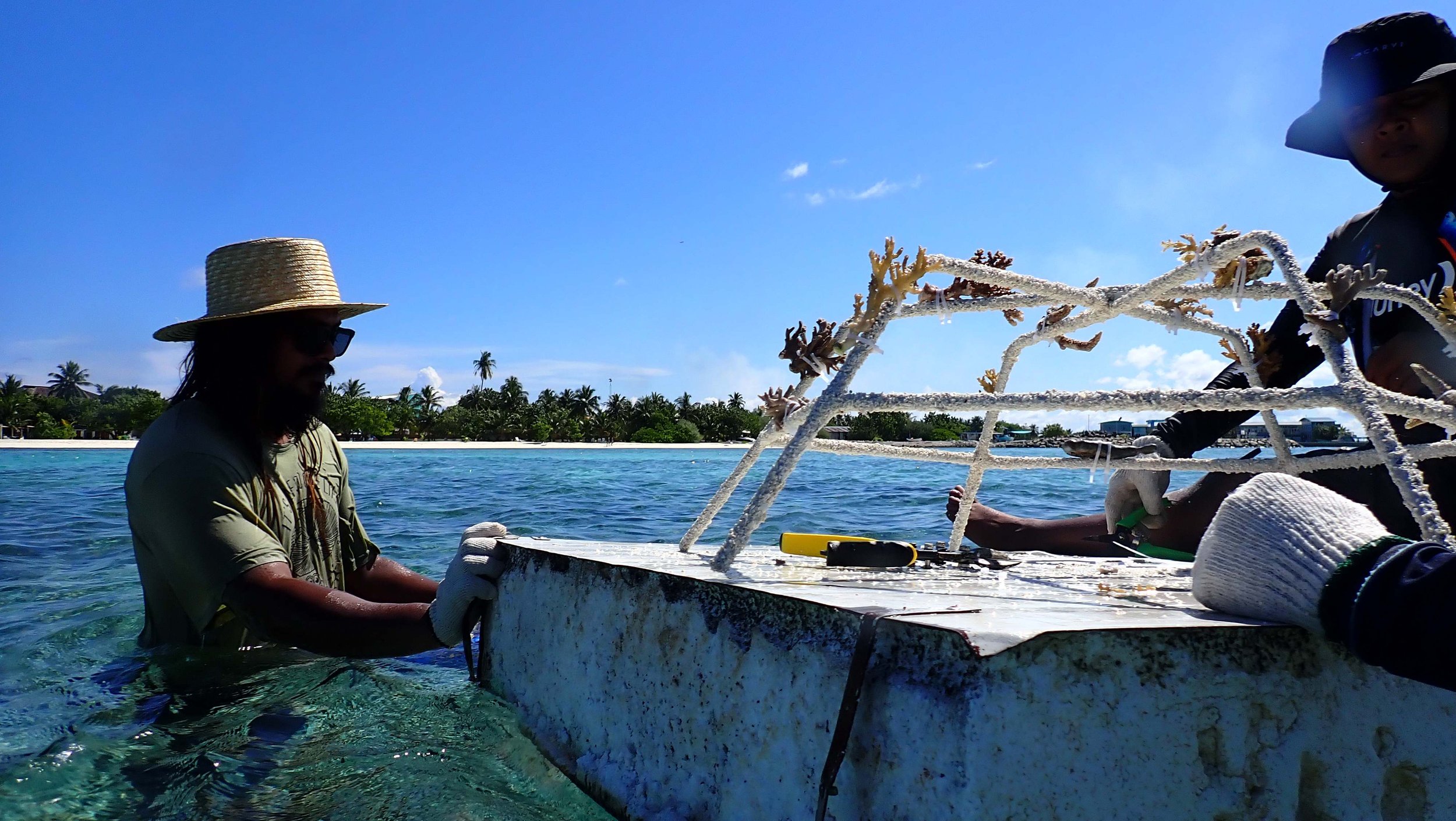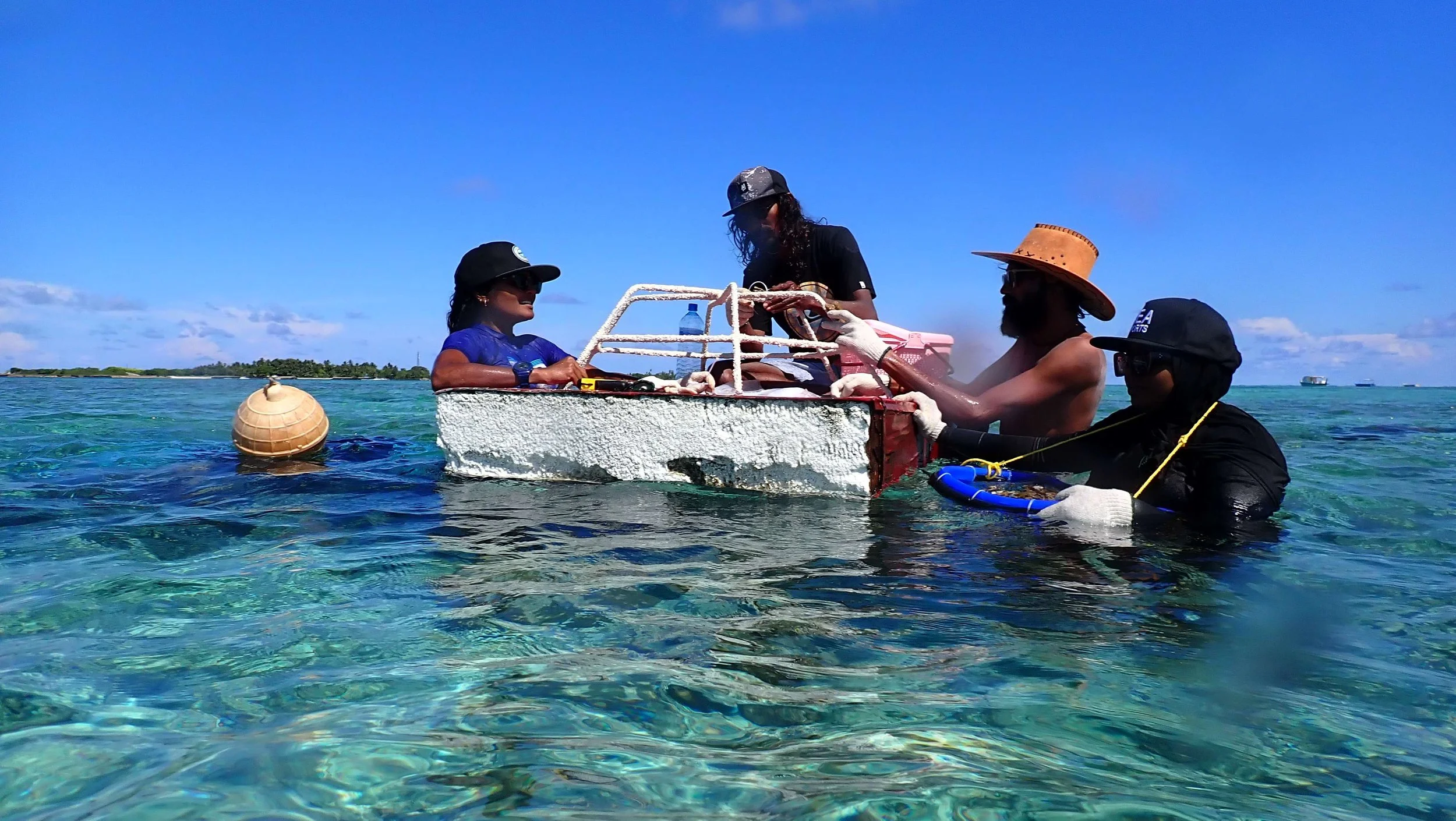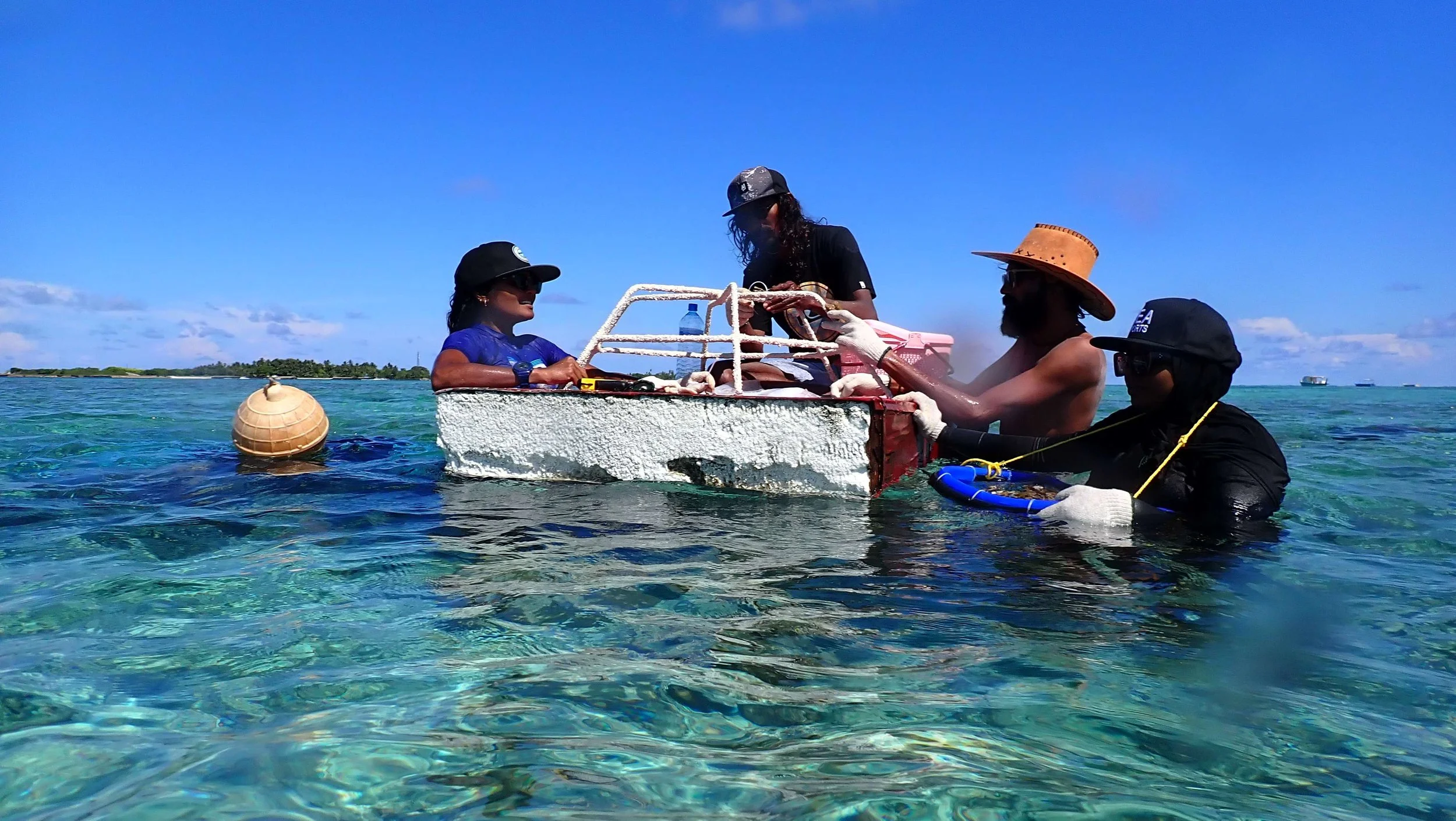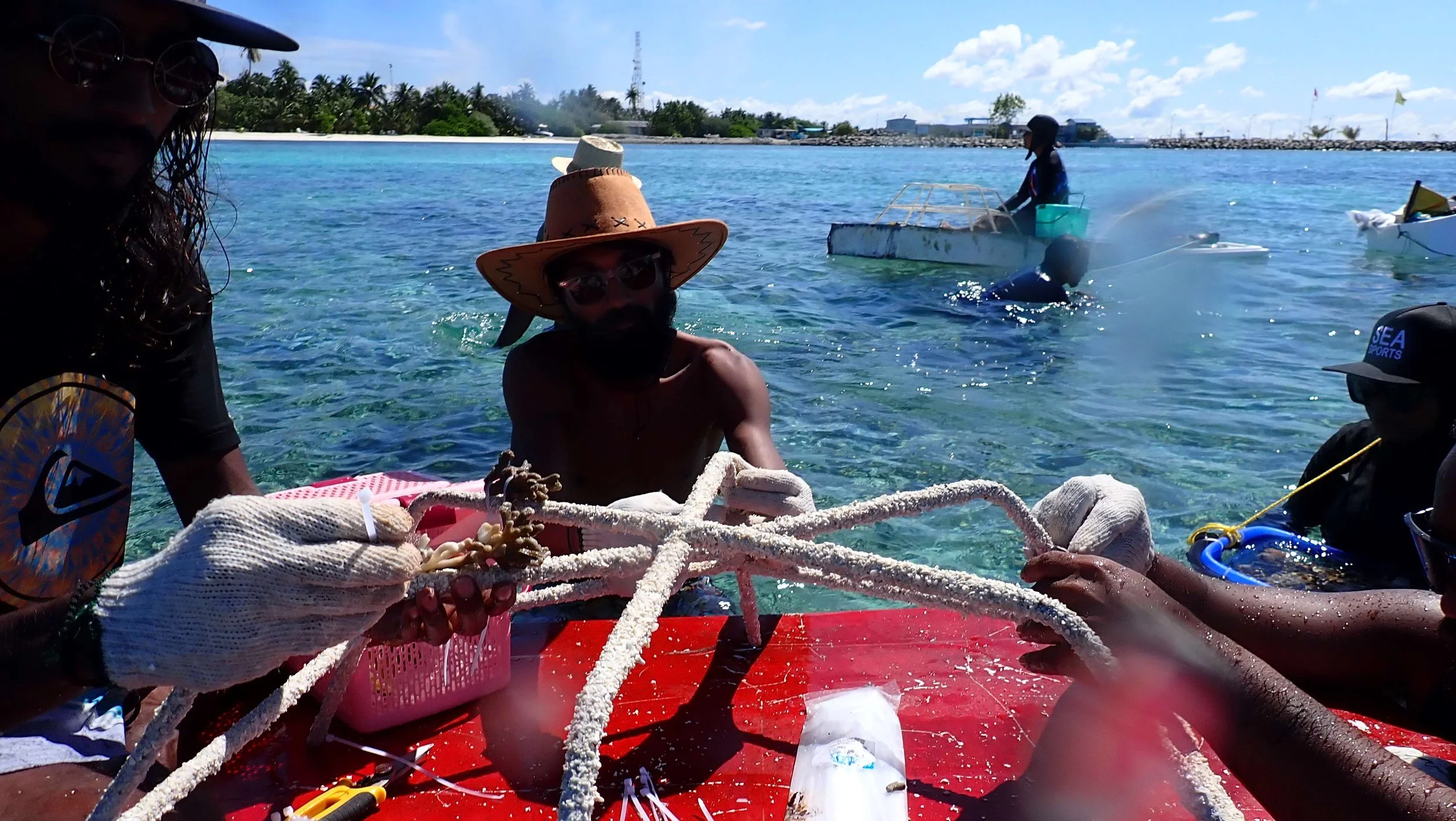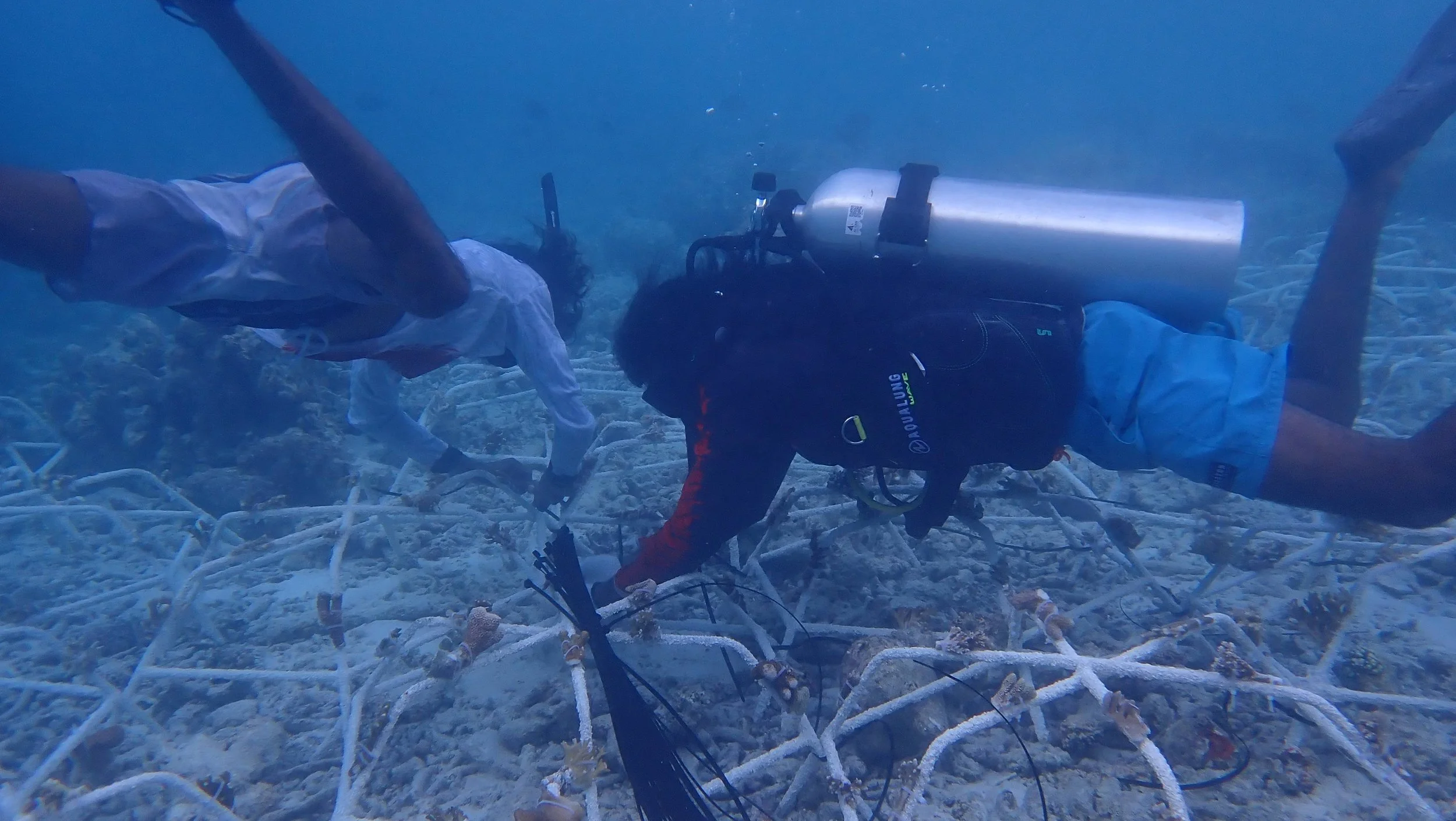Low-lying coral atolls in the Maldives are under significant threat from rising sea levels and warming oceans, aggravated by destructive development practices. As a result, protective reefs have deteriorated, leaving local communities vulnerable to erosion and flooding. The Maldives Coral Institute (MCI) has launched a project aimed at restoring the K. Himmafushi Reef to address these post-degradation issues.
This project has been made possible by the kind support of Der Touristik. The project is also supported by Mars Global and Sheba Hope Grows, and is carried out in partnership with Himmafushi NGO Minivanfaru, Himmafushi Council and community, and Save the Beach Maldives.
MCI employs the Mars Accelerated Reef Restoration System (MARRS), a low-technology community-based method that rapidly rebuilds coral reefs. Reef Stars are low-profile structures coated with sand, anchor to the seabed to create a stable foundation for new coral growth. This approach has been highly successful in the past with significant increases in coral cover and fish abundance.
We installed 100 Reef Stars during Phase I of the project in 2023, using approximately 1500 locally collected coral fragments, during which progress has been observed in terms of coral cover, coral health, and community involvement.
Phase II will be carried out in 2025, expanding the restoration with a further 200-300 reefstars, enhancing the team's skills, and restoring a larger area.
MCI collaborates with Himmafushi Island Council and local NGO Minivanfaru. After community consultations, a local team of up to 10 people, including women and youth, were trained during the project. monitoring and maintenance. MCI and Minivanfaru carries out monitoring and maintenance.
The project is expected to continuously increase live coral coverage, which will have positive effects against erosion and protect the island. It will also enhance the reef's aesthetics, coral cover, biodiversity, and local ocean literacy.
The Restoration of K. Himmafushi Reef aims to restore a vital coral reef in the face of climate change and destructive practices. While restoring degraded reef, the project also creates a sense of ownership amongst the community, and increases awareness about the importance of healthy coral ecosystems, ultimately contributing to the long-term resilience of the island and its inhabitants.
